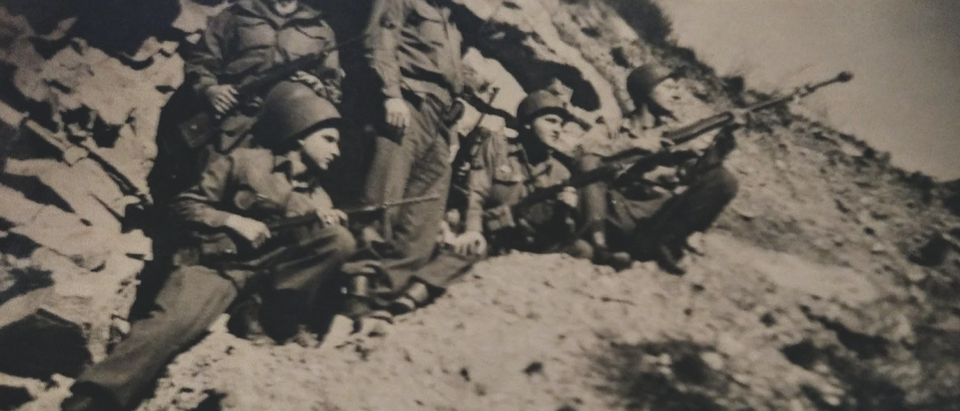Despite the brutal trench warfare that gripped much of western Europe in 1914, the week before Christmas was marked with spontaneous ceasefires.
French and German soldiers all along the front lines who had just hours earlier been engaged in a fight to the death, climbed out of the trenches and exchanged seasonal pleasantries. They shared cigarettes and coffee — knowing that they would return to the bitter war hours later — in joint recognition of Christmas Day.
It began with the Germans, who boldly climbed into “no man’s land” unarmed, calling out “Merry Christmas” in French and English. German Lieutenant Kurt Zehmisch was stunned by the turn of events. “How marvelously wonderful, yet how strange it was. The English officers felt the same way about it. Thus Christmas, the celebration of Love, managed to bring mortal enemies together as friends for a time,” he later recalled.
I heard the bells on Christmas day, Their old familiar carols play,
And wild and sweet the words repeat, Of peace on earth, good will to men.
I thought how, as the day had come, The belfries of all Christendom,
Had rolled along th’unbroken song, Of peace on earth, good will to men.
But three decades later, despite very similar battle lines being drawn, the world was a very different place. Vincent Speranza, a veteran of the 501st Parachute Infantry, explained in a statement recorded for the 101st Airborne Museum in Bastogne, Belgium, that many Allied soldiers expected a similar “Christmas Truce” — or at least a brief ceasefire — in recognition of the sacred holiday.
Instead, continuing a brutal offensive that had begun on December 16, German forces bore down even more fiercely on the Belgian city of Bastogne — the last major Allied stronghold preventing Hitler’s armies from reaching the Meuse River, and then the coveted port city of Antwerp.
German forces, in spite of their own fuel shortages and difficulties navigating the terrain, were able to encircle the city and the American 101st Airborne Division — along with a number of other attached divisions and stragglers — trapping them inside the ever-tightening line. They sent orders to American General Anthony McAuliffe demanding unconditional surrender, promising the destruction of Bastogne if he refused.
“Nuts!” was McAuliffe’s one-word reply, and his troops shared the sentiment. “They’ve got us surrounded — the poor bastards!” quickly became a popular rallying cry among the embedded Allied troops. (RELATED: My Grandfather’s Christmas On The Battlefield: 74th Anniversary Of The Battle Of The Bulge)
When night fell on Christmas Eve, Speranza recalled, the German Luftwaffe rained down Hell on the city of Bastogne.
Bud Lauer, a veteran of the 101st Airborne Division, told the Waterloo Courier in Iowa that even a hospital was bombed that night — all while the advancing German army was broadcasting Christmas carols over loudspeakers.
“That night, when they hit the hospital, there was 150 GIs got killed there, an American nurse and two French nurses. There was 175, 200 patients there,” Lauer explained. “That’s the night the Germans found our position, too. We had (enemy shells) land right around us. We had about an 18-foot diameter circling the gun site and we had 13 shells come in. Shells came in good that night.”
Lauer also noted that word of the Malmedy Massacre — where the German SS rounded up dozens of surrendering Allied soldiers and executed them — had spread to the front lines in Bastogne by then as well.
And in despair I bowed my head: “There is no peace on earth,” I said,
For hate is strong and mocks the song, Of peace on earth, good will to men.
Despite their own supply shortages and heavy casualties, the 101st’s “Screaming Eagles” quickly earned their new nickname: “the Battling Bastards of Bastogne.” Outnumbered in some cases five-to-one, they held the city until the real Christmas gift arrived — just one day late.
On December 26, General George Patton arrived with the Third Army and punched through the German lines, breaking Hitler’s death-grip on Bastogne for the final time.
Then pealed the bells more loud and deep: “God is not dead, nor doth he sleep;
The wrong shall fail, the right prevail, With peace on earth, good will to men.


